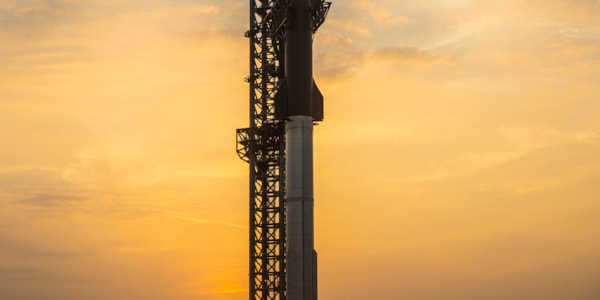Environmental groups sue FAA over SpaceX launch

As a new age of space exploration is emerging, environmentalists are showing concern over the implications of the research and testing being done. Groups are taking a stand by suing the FAA for not fully analyzing and mitigating the environmental ramifications of last month’s recent SpaceX launch.
The Center for Biological Diversity has filed a lawsuit in the federal district court of Washington, D.C. with the American Bird Conservancy, Surfrider Foundation, Save RGV and the Carrizo/Comecrudo Nation of Texas, Inc. The Center announced the lawsuit on Monday, saying that regulators have failed to address the dangers of the launch at Boca Chica in Texas.
RELATED STORY:
SpaceX Starship launches but breaks up early
The launch, which took place on April 20, lifted off successfully and cleared the pad on the beach for its flight path, only to break apart in the air before the stage separation. The minor explosion, or as SpaceX called it, a “rapid unscheduled disassembly” was not seen as a setback by Elon Musk or his company, but rather another trial to learn from. SpaceX continues testing, with plans to send people and cargo to the moon and then finally, to Mars.
The launch site is next to a habitat for protected species and migratory birds, like the Kemp’s ridley sea turtle and piping plover. Both the rocket launch and explosion sent debris all around the area, including concrete chunks, stainless steel sheets and metal, along with a cloud of pulverized concrete which deposited materials up to 6.5 miles northwest of the site, according to the U.S. Fish and Wildlife Service. CNBC also reported that a 3.5-acre fire started south of the pad site on Boca Chica State Park Land. USFW staff had reported 385 acres of debris on the facility’s land and at the state park.
The Center for Biological Diversity fears that the FAA approval to launch 20 Starship/Heavy rockets each year for the next five years, which are the largest rockets ever made, will do more harm to the community than good. Having the site right next to a crucial habitat will put already imperiled wildlife in more danger, with more debris and fire a potential hazard with every launch.
The FAA did an initial environmental review in 2022 with the information provided on the Starship’s planned landing, the Super Heavy’s planned soft water landing and the launch pad detonation suppression system. On April 14, the FAA published a written reevaluation, looking into whether a supplemental environmental analysis is needed to support the FAA Office of Commercial Space Transportation’s decision to give SpaceX a vehicle operator license to use the rocket, based on new information.
The Boca Chica launch site on a map
The FAA concluded in its re-evaluation that the license given to SpaceX conforms to prior environmental documentation and data previously contained in the 2022 study remains valid. The study acknowledged that there was access restriction to Boca Chica State Park and other historic and environmental sites in other testing areas like Hawaii.
The executive summary noted that the FAA had found the proposed action “may affect, but is not likely to adversely affect” species listed in the Endangered Species Act. It also states that the proposed action “may affect and is likely to adversely affect ESA-listed species and critical habitat under USFWS jurisdiction.”
The Center alleges that the FAA dismissed the possible damages as not “significant enough” due to the proposed mitigation measures. The lawsuit argues that the mitigation will not protect the environment from harm and that the agency has yet to explain how the mitigation would address and prevent rocket explosions and fires from wiping out the nearby habitat. The lawsuit is calling for a full environmental analysis to be done in order to protect the threatened and endangered species as well as ensure public beach access to people.

The access restriction area at the launch site
“It’s vital that we protect life on Earth even as we look to the stars in this modern era of spaceflight,” said Jared Margolis, a senior attorney at the Center for Biological Diversity. “Federal officials should defend vulnerable wildlife and frontline communities, not give a pass to corporate interests that want to use treasured coastal landscapes as a dumping ground for space waste.”
The launch site is surrounded by state parks, wildlife habitats and National Wildlife Refuge lands. The animals that this could impact include piping plovers, northern aplomado falcons, Gulf Coast jaguarundi, ocelots and critically endangered sea turtles.
The Center feels that the launches and explosions will cause harm through the increased vehicle traffic, intense heat, noise and light pollution. The recent launch and resulting spread of debris and brush fires have sparked increased concern over the fate of the Boca Chica beach and state park in the next five years.
Boca Chica is one of the most biologically diverse regions in North America, with species from all over during the year and with migratory patterns moving north and south. The most critically endangered sea turtle, the Kemp’s ridley sea turtle also calls the region home, seeking refuge on the beaches in the warmer months.
“By now, most people know that birds are in serious declines — and shorebirds like those that rely on Boca Chica are among the fastest-disappearing,” president of American Bird Conservancy Mike Parr said. “Overall, we’ve lost nearly 3 billion birds from the United States and Canada since 1970. At what point do we say ‘Space exploration is great, but we need to save habitats here on Earth as a top priority?’ For the sake of future generations, let’s protect the healthy habitats we have left instead of treating them as waste places for pollution and fuselage.”
The Center also feels the project will reduce the public’s access to the parklands and beach.
“Eight hundred hours of closure fly in the face of the Texas Open Beaches Act, the state constitution, and Texans’ rights to free and unrestricted access to Texas beaches,” said Sarah Damron, senior regional manager for the Surfrider Foundation. “That’s the equivalent of 20, 40-hour work weeks every year that Texans and visitors will be deprived of access to Boca Chica Beach. What’s worse is that these closures can happen at almost any time with little to no notice to the public, so the beach, parklands and refuge lands are ostensibly closed to anyone who needs to make plans. This is an unacceptable loss to area residents and to the people of Texas.”
This project also infringes on the Carrizo/Comecrudo people’s sacred lands, preventing the nation’s ability to hold traditional ceremonies and leave offerings for their ancestors.
“The Carrizo/Comecrudo people’s sacred lands are once again being threatened by imperialist policies that treat our cultural heritage as less valuable than corporate interests,” said Juan Mancias, tribal chair of the Carrizo/Comecrudo Nation of Texas, Inc. “Boca Chica is central to our creation story. But we have been cut off from the land our ancestors lived on for thousands of years due to SpaceX, which is using our ancestral lands as a sacrifice zone for its rockets.”
AP News reported that Musk said changes were being made to avoid the concrete dust storm that occurred at the last launch. He made promises to make improvements before the next launch, modifying the self-destruct system.
The FAA has not commented on the situation yet.
Contact
Name: Haley Davoren
, Digital Content Manager
Company: GlobalAir.com
Website: https://globalair.com
Email: [email protected]
Phone: 502-456-3934
©2023 GlobalAir.com, Haley Davoren. All rights reserved.

Recent Comments